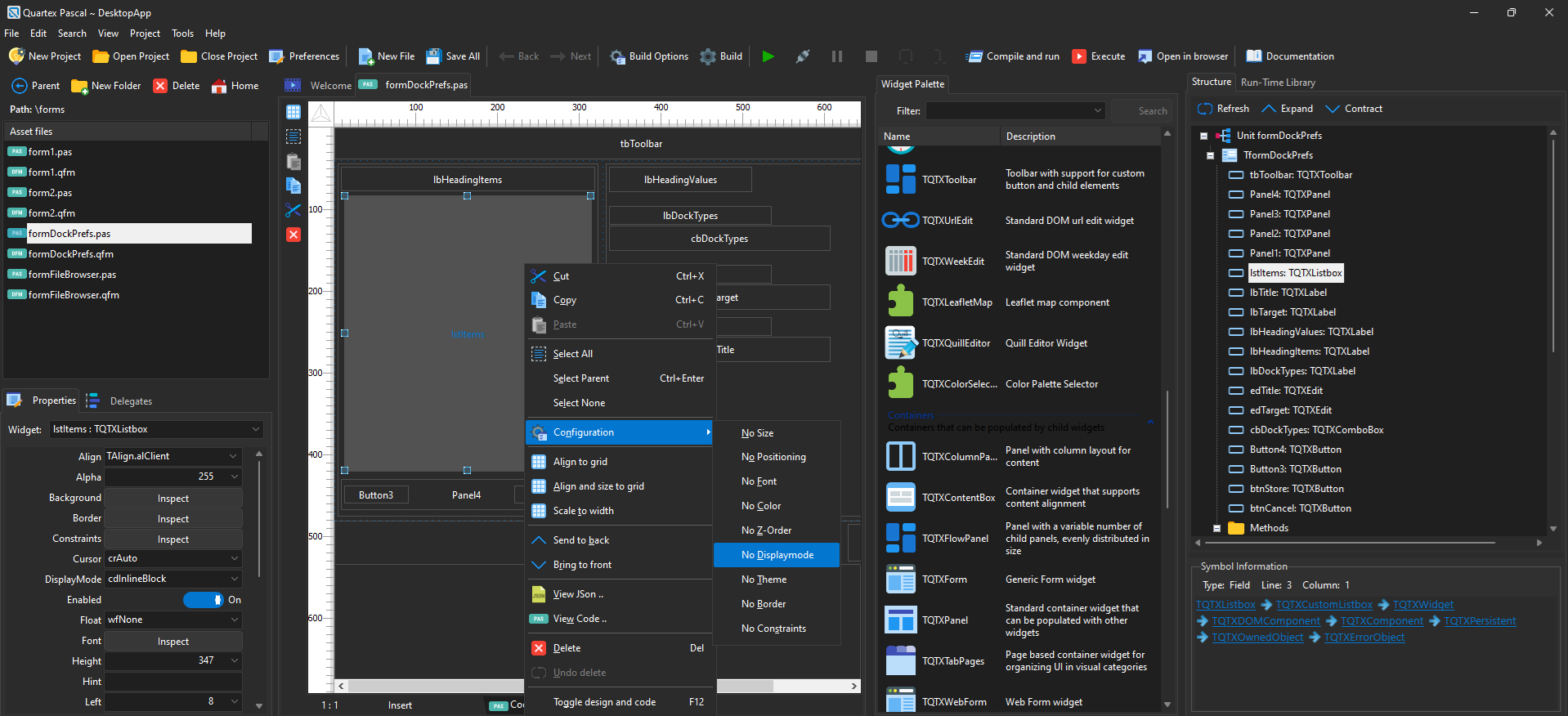Quartex Pascal was created because we needed a compiler and run-time library that made large-scale web deployment easy and cost effective.
While JavaScript has evolved much in the past 10 years, there are still aspects of developing with JavaScript that is difficult and time consuming to get right.
What we mean by ‘large scale deployment’ in this case are large and complex applications, something like Adobe Photoshop or a full accounting system; applications that are technically demanding with as many as 100 forms involved. Applications that under HTML5 would need to deal with cloud storage and a database driven back-end.
We wanted a system that made that level of engineering possible from a traditional approach, with form design, property inspector, event handling and all the time saving benefits that RAD tools are famous for (e.g Delphi or Freepascal). It shouldn’t take weeks to knock out a form driven web application, and developers shouldn’t have to work with esoteric and often counter intuitive libraries.
While JavaScript is extremely powerful, it paradoxically suffers from having too many libraries available. We wanted structure, the same structure that we were used to with classical software development. We also wanted RAD (Rapid Application Development) which emphasize reusable components and packages (especially visual components) that saves time.
We also wanted a run-time library similar to Delphi, C# or Freepascal where it’s easy to create your own classes and components through inheritance. We likewise wanted a simple mechanism for registering your own components with the IDE so they can be used by the form designer. And further, we wanted a package system so component collections could be easily distributed or sold.
While these things are conceptually simple on the level of idea, creating a system capable of these things is quite a challenge. We have to keep in mind that these are source-packages, where things like protection and license management had to be re-invented.
Below you can read about different aspects of Quartex Pascal and how it all fits together to deliver RAD (rapid application development) for web technology.
